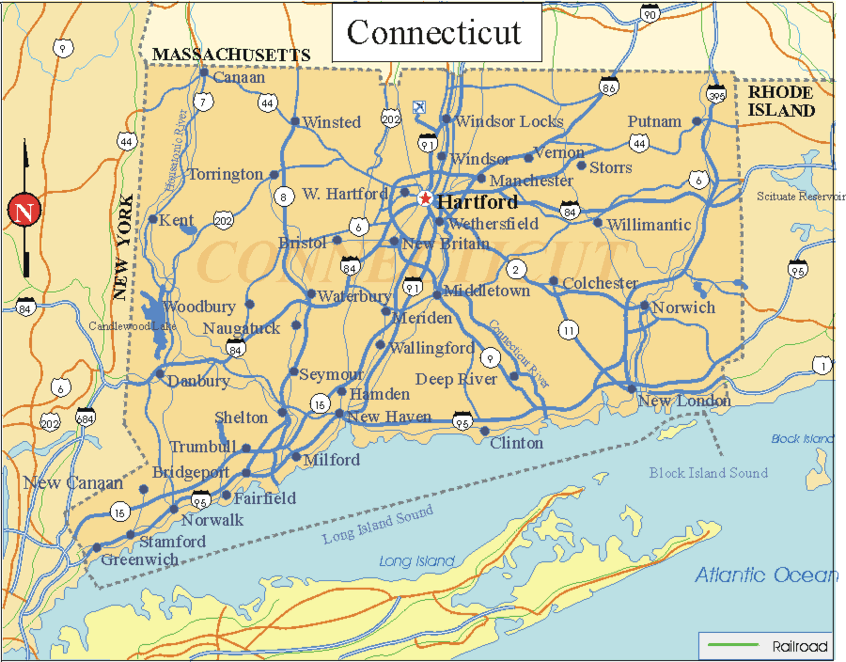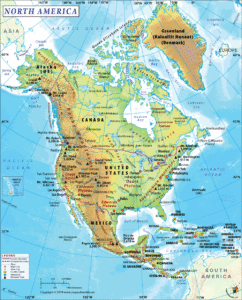Connecticut, often referred to as the Constitution State, is a treasure trove of unique facts that reveal the distinctive character and history of this New England gem. While many may think they know the state, a closer examination unveils fascinating elements that provoke curiosity and admiration. Below, we delve into some surprising attributes of Connecticut that contribute to its reputation as a culturally rich and historically significant locale.
1. The Birthplace of the Fundamental Orders
Connecticut has long held the title of the “Constitution State,” a moniker that derives from its historic Fundamental Orders of 1638-1639. These documents are often cited as the first written constitution that created a government. Significantly, the Fundamental Orders established a framework that provided voting rights for all property-owning men, prefiguring modern democratic principles. This early experiment in governance set a precedent, showcasing Connecticut’s role as a pioneer of democracy.
2. An Unprecedented Maritime Heritage
With a lengthy coastline along Long Island Sound, Connecticut’s maritime history is both profound and multifaceted. The state was once a hub for shipbuilding during the 18th and 19th centuries, renowned for its clippers and whaling vessels. This rich maritime legacy influences local culture, as evidenced by Connecticut’s numerous maritime museums and historic shipyards. The Nautilus, the world’s first nuclear submarine, was launched in Groton, highlighting Connecticut’s continuing significance in naval innovation.
3. The First American Dictionary
No exploration of Connecticut’s uniqueness would be complete without acknowledging Noah Webster, a Connecticut native who revolutionized American English. In 1828, Webster published the first American dictionary, a monumental achievement that helped standardize the language. His work not only defined words but also included Americanisms, reflecting the evolving identity of the growing nation. Today, the Merriam-Webster dictionary remains a leading reference, rooted in the legacy of its founder.
4. A Hub of Innovation and Invention
Connecticut has a storied history of innovation that extends beyond Webster’s lexicon. The state was the birthplace of numerous inventions, including the first-ever helicopter and the modern assembly line. Additionally, Thomas Edison established his first industrial research laboratory in Menlo Park, New Jersey, but it was in Hartford that he created the first practical incandescent light bulb. These contributions to technology and industry have solidified Connecticut’s status as a cornerstone of American innovation.
5. Educational Excellence
Connecticut is home to an array of prestigious educational institutions that underscore its commitment to learning. Yale University, founded in 1701, is a world-renowned Ivy League school that channels the spirit of inquiry and academic rigor. In addition to Yale, other esteemed colleges like Wesleyan University and the University of Connecticut contribute to an environment rich in scholarship and creativity. Collectively, these institutions attract students and researchers from all corners of the globe, fostering a diverse intellectual community.
6. Rich Culinary Traditions
Connecticut’s culinary offerings reflect its unique geographic positioning, garnering attention for both their historical significance and modern flair. The state claims the invention of the steamed cheeseburger, a regional delicacy that has become a beloved staple in local diners. Furthermore, Connecticut is celebrated for its apizza, a variant of Neapolitan pizza that is distinct for its thin crust and charred exterior. These culinary creations reveal a deeper cultural narrative, showcasing how local ingredients and traditions give rise to a distinctive gastronomy.
7. Home to the Mark Twain House
Mark Twain, one of America’s most cherished literary figures, spent a significant portion of his life in Hartford, Connecticut. The Mark Twain House, where he penned classics such as “The Adventures of Tom Sawyer,” stands as a monument to his literary legacy. The house, an example of Victorian Gothic architecture, has been carefully preserved and offers insight into Twain’s life and work. Visitors can explore the uniquely crafted interiors and gardens that echo the author’s wit and charm.
8. The Sea of Connecticut’s Natural Wonders
Beyond its urban landscapes, Connecticut boasts an astonishing array of natural beauty. The state’s varied topography includes rolling hills, pristine rivers, and stunning shoreline. The Connecticut River, the longest river in New England, offers unparalleled opportunities for recreation and exploration. State parks and forests, such as Sleeping Giant State Park and Gillette Castle State Park, preserve the biodiversity and rugged landscapes that define the region, encouraging both inhabitants and visitors to engage with the great outdoors.
9. A Legacy of Arts and Culture
Connecticut is not only rich in natural and historical resources but also in the arts. The state supports a vibrant arts scene characterized by theaters, galleries, and music festivals. The Eugene O’Neill Theater Center, located in Waterford, focuses on the development of new works, signifying Connecticut’s role in the theatrical arts. Additionally, the state’s commitment to public art, as seen in the impressive murals and sculptures scattered across cities, underscores a broader cultural narrative that embraces creativity and expression.
10. Haunted Histories
For those fascinated by the paranormal, Connecticut doesn’t disappoint. The state is home to numerous haunted locations, each with ghostly tales that pique intrigue. The grounds of the ancient Hartford’s Ancient Burying Ground and the infamous Mark Twain House allegedly resonate with spectral tales, drawing enthusiasts of the supernatural. This intersection of history and folklore connects residents to their past, illustrating how narratives persist over time and contribute to the state’s unique cultural fabric.
In conclusion, Connecticut, often overshadowed by its neighboring states, offers an array of surprising facts that reflect its rich heritage and contemporary significance. From its early contributions to American democracy to its culinary innovations, the Constitution State invigorates the imagination and serves as a testament to the complexities of a state steeped in history. Each fact, no matter how small, tells a story of a state committed to preserving its identity while continually evolving. This makes Connecticut not just a place on the map, but a vibrant canvas of American life waiting to be explored.








